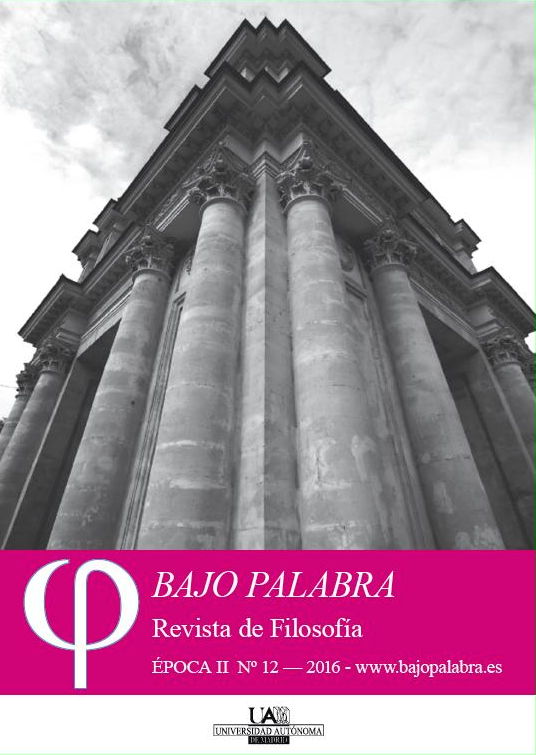La relación entre la ciencia y el ideal ascético en la genealogía de Nietzsche
Parole chiave:
Nietzsche, ideal ascético, ciencia, soberanía, autonomíaCopyright (c) 2016 Gabriel Zamosc

TQuesto lavoro è fornito con la licenza Creative Commons Attribuzione 4.0 Internazionale.
Abstract
En este ensayo propongo una interpretación de la relación entre la ciencia y el Ideal Ascético en La Genealogía de la Moral, que busca explicar la enigmática alianza entre ambos que Nietzsche establece al final del tercer tratado de la mencionada obra. Según Nietzsche, contrario a lo que se cree, la ciencia moderna no es realmente un antagonista del Ideal Ascético sino más bien su forma más reciente y más noble. Argüiré que, para Nietzsche, el Ideal Ascético ha sido hasta el momento la única respuesta que el ser humano ha dado a su forma especial de existencia, que consiste en encontrarse en la situación de ser el único animal capacitado para la independencia y la soberanía. El Ideal Ascético expresa una huida de la responsabilidad y la carga (el sufrimiento) que esa capacidad para la soberanía comporta. Así pues, la ciencia, como expresión última de dicho ideal, representa al igual que éste una evasión de la independencia y una declaración de guerra contra la libertad de la voluntad, es decir, contra la autonomía.
Downloads
Riferimenti bibliografici
Anderson, Lanier. “On the Nobility of Nietzsche’s Priests”. En: Nietzsche’s “On the Genealogy of Morality”: A Critical Guide, ed. Simon May, Cambridge University Press, Cambridge, 2011. https://doi.org/10.1017/CBO9781139014977.004
Babich, Babette. Nietzsche’s Philosophy of Science: Reflecting Science on the Ground of Art and Life. State University of New York Press, New York, 1994.
Clark, Maudemarie. Nietzsche on Truth and Philosophy. Cambridge University Press, Cambridge, 1990.
Conway, Daniel. Nietzsche’s On the Genealogy of Morals: a Reader’s Guide. Continuum, New York, 2008.
Hatab, Lawrence. Nietzsche’s On the Genealogy of Morality: an Introduction. Cambridge University Press, Cambridge, 2008. https://doi.org/10.1017/CBO9780511812002
Leiter, Brian. Nietzsche on Morality. Routledge, New York, 2002.
Morrison, Iain. “Ascetic Slaves: Rereadng Nietzsche’s On the Genealogy of Morals”. En: Journal of Nietzsche Studies, Vol. 45 (3), 2014. https://doi.org/10.5325/jnietstud.45.3.0230
Owen, David. Nietzsche’s Genalogy of Morality. McGill-Queen’s University Press, Ithaca, 2007.
Ridley, Aaron. Nietzsche’s Conscience: Six Caharacter Studies from the “Genealogy”. Cornell University Press, Ithaca, 1998.
Zamosc, Gabriel. “Nietzsche’s Ideal of Wholeness”. En: Revista de Filosofía de la Universidad de Costa Rica. Vol.53, No.137, 2014.
Zamosc, Gabriel. “The Relation between Sovereignty and Guilt in Nietzsche’s Genealogy”. En: European Journal of Philosophy. 20 S1, 2012. https://doi.org/10.1111/j.1468-0378.2011.00484.x
